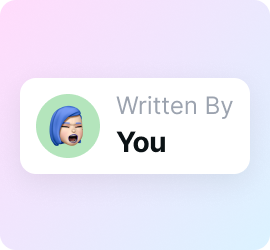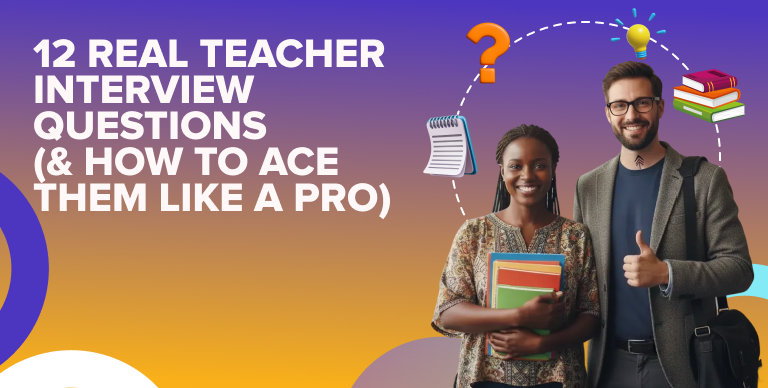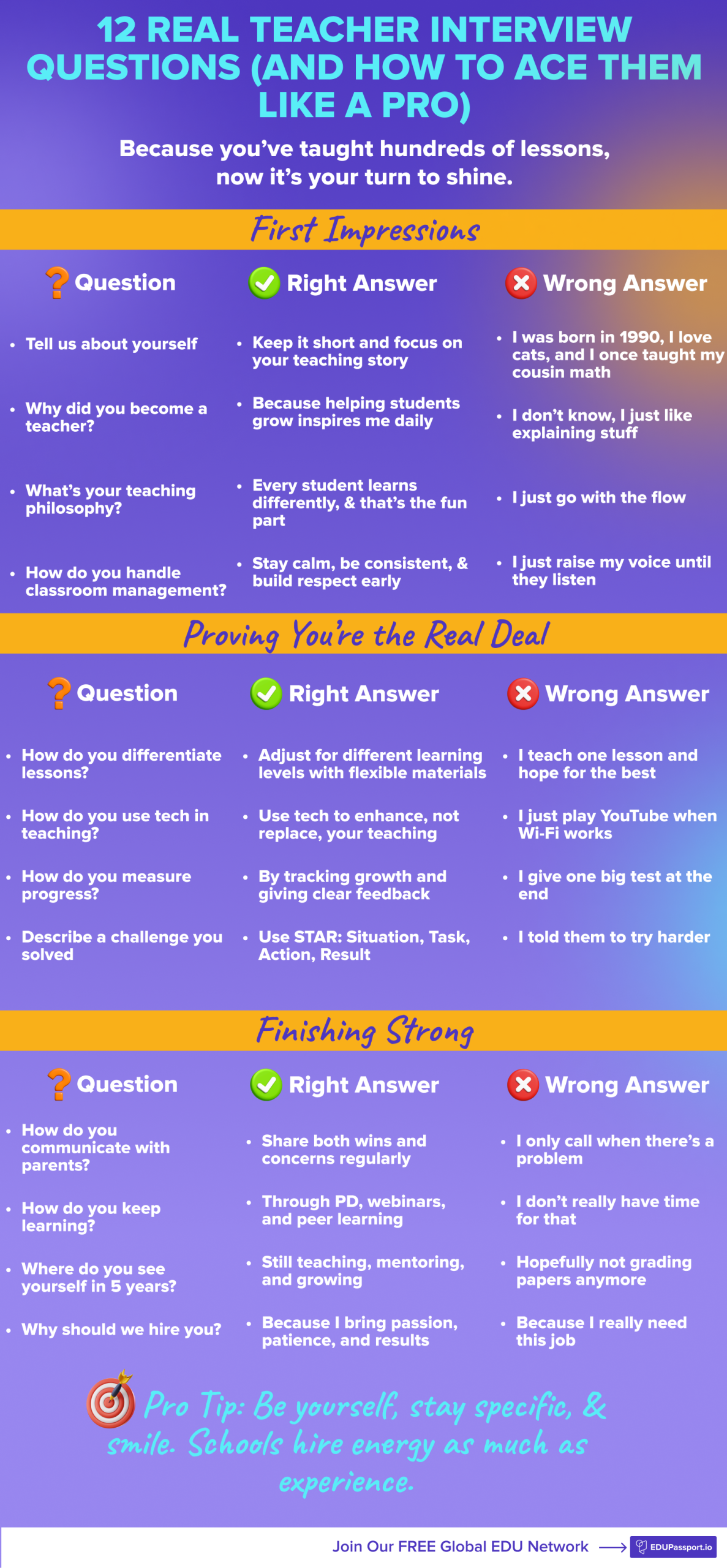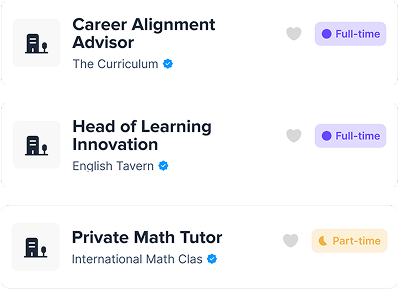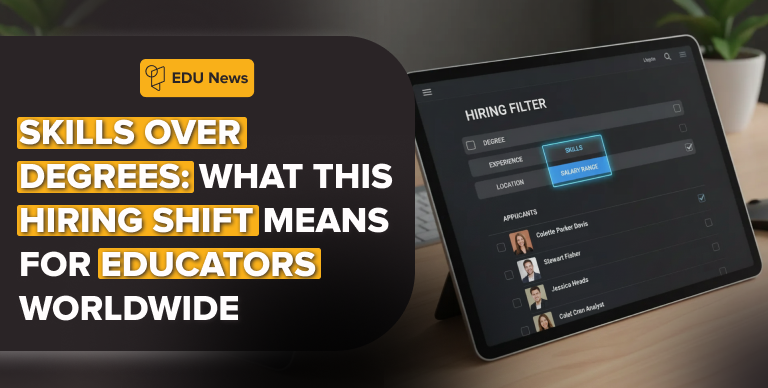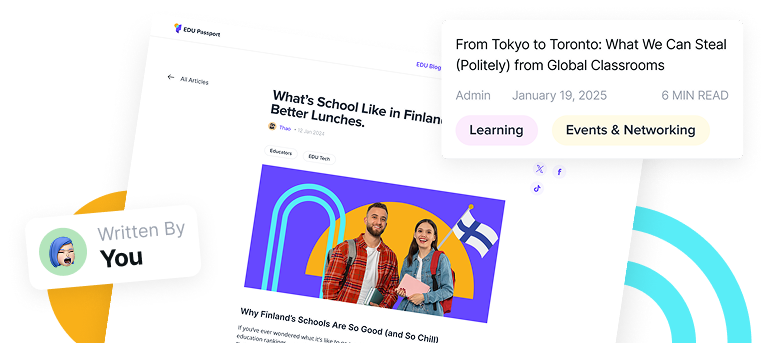You’ve taught hundreds of lessons, but somehow, one interview question can make your mind go blank. Don’t worry, we’ve got you.
At EDU Passport, we’ve connected thousands of teachers across 130 countries and helped educators land jobs that fit their skills, values, and spark. To help you prep like a pro, we’ve gathered 12 real teacher interview questions schools actually ask, along with example answers, funny mistakes to avoid, and pro tips to help you shine.
Let’s dive in.
1. Tell us about yourself

Why they ask: They want to see your motivation and personality fit, not your full life story.
How to ace it:
Keep it professional and relevant. Focus on your teaching journey and what makes your classroom approach unique.
Example answer:
“I’ve been teaching English for five years, starting in public schools and later abroad. I love creating lessons that help students connect real life to language. My goal is always to make learning engaging and accessible for everyone.”
Wrong example:
“Well, I was born in Ohio, I love cats, and my favorite color is blue…”
💡 Pro Tip: Skip your resume summary. Tell them what lights you up as a teacher.
2. Why did you become a teacher?
Why they ask: They want to know your why. Passion counts more than perfection.
How to ace it:
Focus on your impact and what keeps you motivated, not just “I love kids.”
Example answer:
“I became a teacher because I believe education can change a student’s life. Seeing shy learners grow confident in expressing themselves reminds me why I chose this path.”
Wrong example:
“I don’t know, I guess I’ve always liked explaining stuff.”
💡 Pro Tip: Share a moment that made teaching feel meaningful to you.
3. What’s your teaching philosophy?
Why they ask: They want to know if your approach fits their school culture.
How to ace it:
Describe your core belief and back it up with a short real-life example.
Example answer:
“I believe students learn best when they feel seen and supported. In my classroom, I build community first, then curiosity follows. When I started each week with student-led discussions, participation doubled.”
Wrong example:
“I just go with the flow and see what happens.”
💡 Pro Tip: A real story makes your philosophy believable.
4. How do you handle classroom management?
Why they ask: They want to know you can keep the peace and keep students learning.
How to ace it:
Show your strategy, not just discipline.
Example answer:
“I set clear routines from day one and involve students in creating class agreements. When issues come up, I focus on reflection, not reaction. It builds trust and accountability.”
Wrong example:
“I just raise my voice until they listen.”
A lot of teachers working on their interview skills are also exploring what it might look like to teach in a new country. If that’s on your mind, our guide How to Get a Teaching Job Overseas Without Losing Your Mind walks you through the process in a friendly, step-by-step way.
💡 Pro Tip: “We” language shows you lead a team, not a crowd.
5. How do you differentiate lessons for diverse learners?
Why they ask: They’re checking if you’re inclusive and adaptable.
How to ace it:
Give one quick, concrete example.
Example answer:
“In a mixed-level English class, I used tiered reading materials so every student could join the same discussion. It helped advanced learners stretch and beginners build confidence.”
Wrong example:
“I teach one lesson and hope everyone keeps up.”
💡 Pro Tip: Use “inclusive.” Schools love hearing it for a reason.
6. How do you integrate technology in your teaching?
Why they ask: They want teachers who use tech with purpose, not as a gimmick.
How to ace it:
Show how tech enhances learning, not replaces it.
Example answer:
“I use Padlet and Nearpod to make lessons interactive, but I combine them with group projects so students still collaborate face-to-face.”
Wrong example:
“I just show YouTube videos when the Wi-Fi works.”
💡 Pro Tip: Name tools you’ve actually used. It builds credibility.
Ready to explore schools that love innovative educators?
Check out EDU Passport job listings.
7. How do you measure student progress?
Why they ask: They want teachers who measure growth, not just grades.
How to ace it:
Mention formative assessments and student reflection.
Example answer:
“I use short exit tickets and student journals to track progress. It helps me adjust lessons and helps them see how far they’ve come.”
Wrong example:
“I just give a test at the end and see what happens.”
💡 Pro Tip: Data matters, but so does dialogue.
8. Describe a challenge you faced and how you solved it.
Why they ask: They want to see resilience, problem-solving, and reflection.
How to ace it:
Use the STAR method (Situation, Task, Action, Result).
Example answer:
“When I taught online during the pandemic, engagement dropped quickly. I introduced 10-minute breakout challenges, and participation improved by 60%. Students even started requesting more activities.”
Wrong example:
“I just told them to focus more and hoped it worked.”
💡 Pro Tip: End with what you learned. Growth wins points.
9. How do you communicate with parents or guardians?
Why they ask: Collaboration builds trust and consistency.
How to ace it:
Show empathy, clarity, and routine communication.
Example answer:
“I send quick updates every two weeks and share positive stories, not just problems. It builds trust and makes harder conversations easier.”
Wrong example:
“I only call when something goes wrong.”
💡 Pro Tip: Positive communication turns parents into partners.
10. How do you keep learning as a teacher?
Why they ask: They’re checking if you model lifelong learning.
How to ace it:
Show curiosity and connection with other educators.
Example answer:
“I attend webinars, reflect after each term, and connect with other teachers through EDU Passport. I believe learning never stops, for students or teachers.”
Wrong example:
“I don’t really have time for that stuff.”
💡 Pro Tip: Mention collaboration. Schools love team players.
11. Where do you see yourself in five years?
Why they ask: They’re checking for purpose and commitment.
How to ace it:
Connect your growth to the school’s mission.
Example answer:
“I see myself mentoring new teachers and helping design inclusive programs. I want to keep learning and contribute beyond my own classroom.”
Wrong example:
“Hopefully not grading papers anymore.”
💡 Pro Tip: Ambition + purpose = memorable answer.
12. Why should we hire you?
Why they ask: It’s your moment to sum up your value with confidence.
How to ace it:
Show your impact and passion without overselling.
Example answer:
“Because I bring energy, creativity, and genuine care to every class. I believe every student deserves a teacher who believes in them, and I show up every day to make that happen.”
Wrong example:
“Because I really, really need this job.”
💡 Pro Tip: End with heart. Principals remember passion.
Final Thoughts
Interview nerves are normal. Preparation is power. These 12 questions will help you tell your story with clarity and confidence.
When you’re ready for your next opportunity, remember: EDU Passport connects over 23,000 educators across 130 countries, helping teachers find schools that value their spark.
View current job listings and start your next teaching chapter today.



